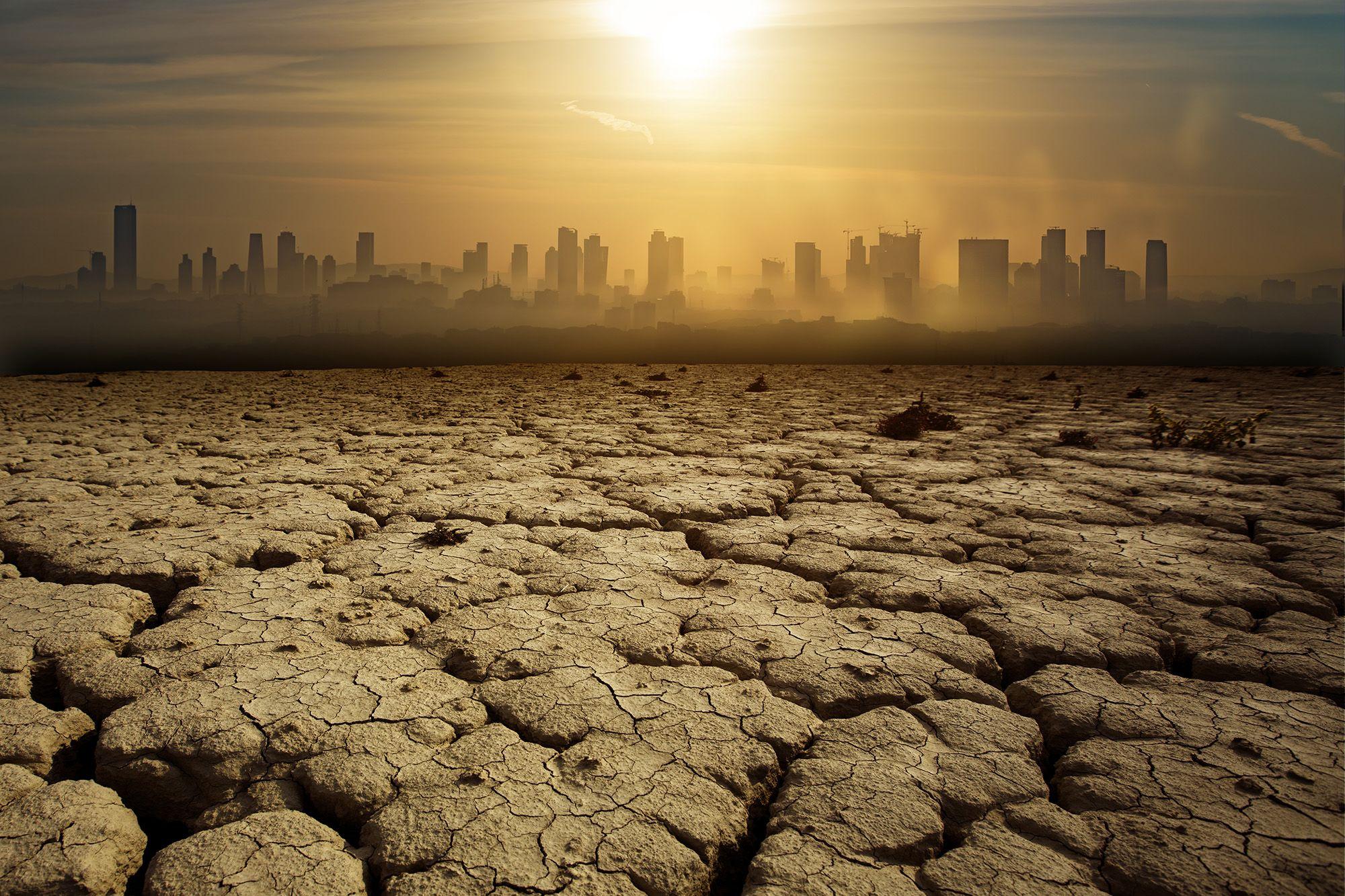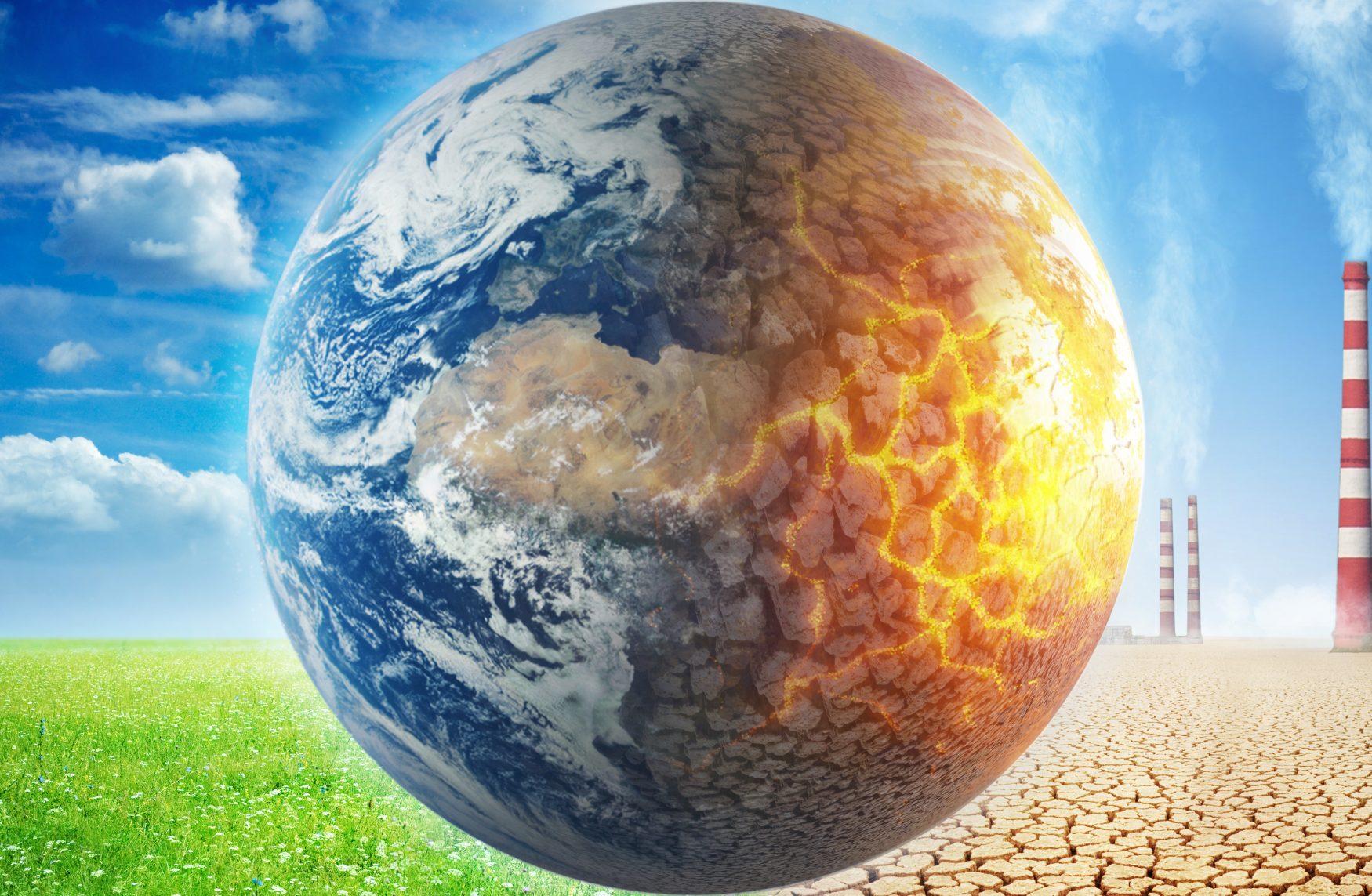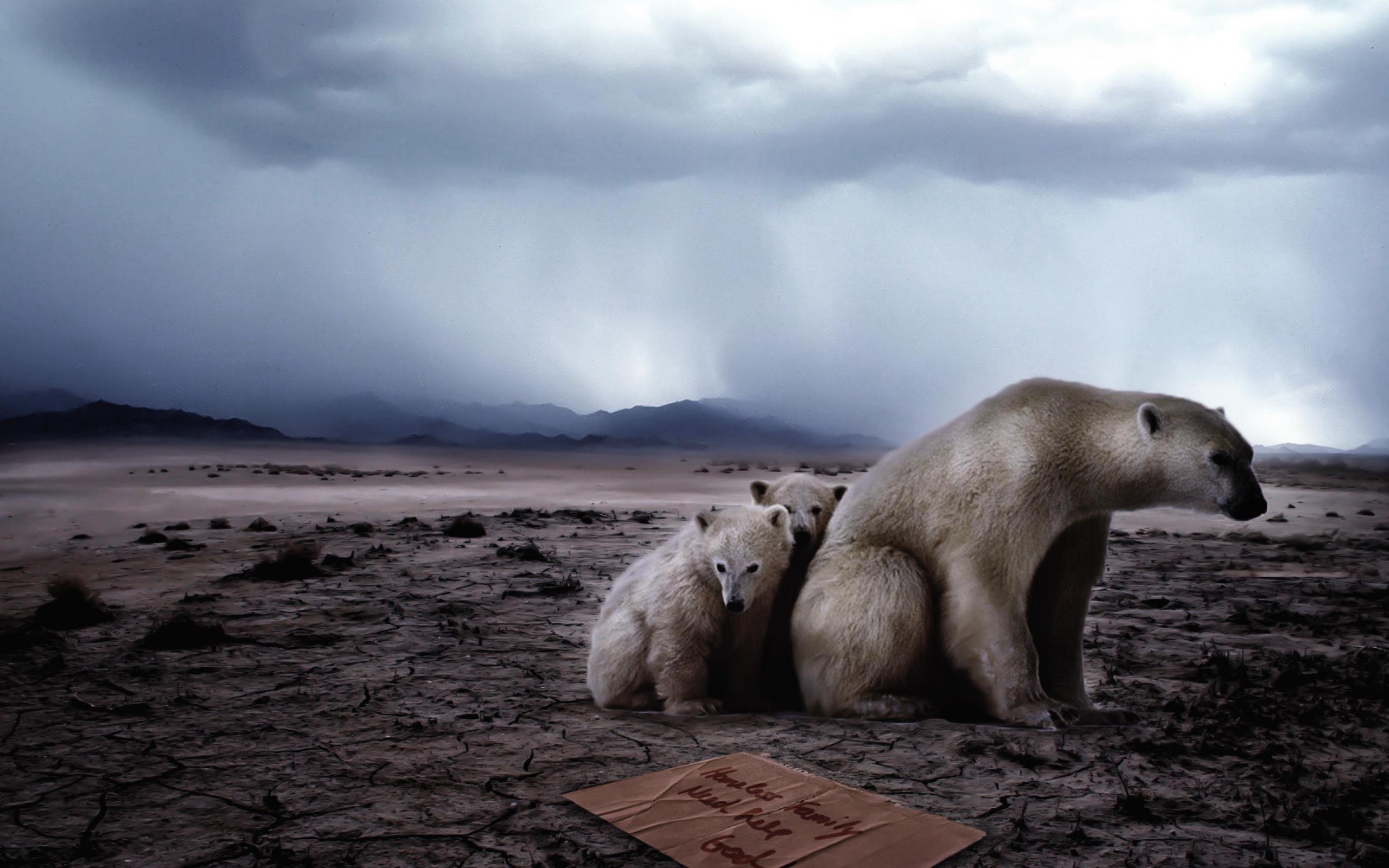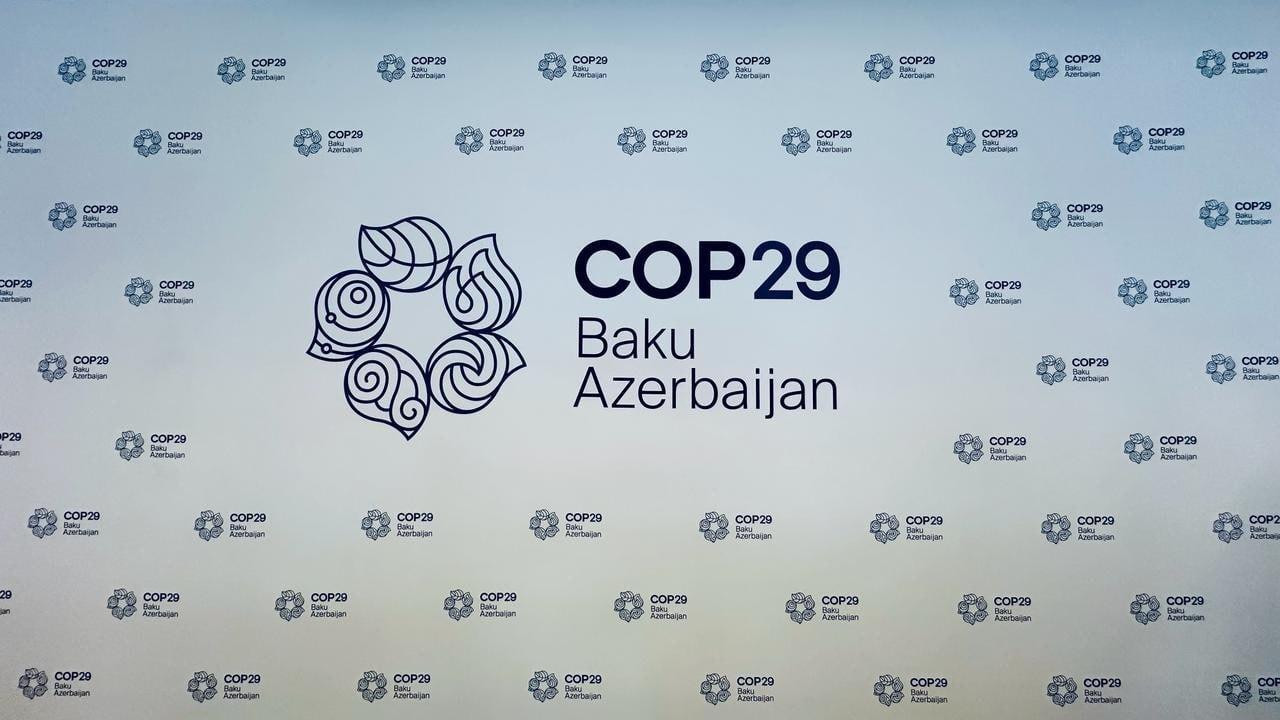Climate and the struggle for survival Caliber.Az forecast
This year our planet is overheating at an unprecedented rate: already this summer we will enter a new climate era. In November 2024, Baku will host the UN World Climate Summit (COP29), where the search for a way out of this alarming situation will continue. As we know, there is no such thing as a hopeless situation.
Heat eruption
Earth's surface temperature has risen at a record pace for the tenth month in a row. Has it ever been seen - the air in Chernivtsi on March 31 warmed up to almost 27.8 degrees Celsius, which was an absolute record and exceeded the climatic norm by 11.5 degrees Celsius. Temperatures this March on the East European Plain were similar to the Mediterranean or North Africa. Ukrainian Chernivtsi overtook Turkish Antalya by more than a degree, where on this day it was "only" 26.7 degrees. Old-timers from the middle zone lament as earlier at this time there were still snowdrifts and crackling frosts. And now, at the beginning of spring, young people are already wearing shorts and T-shirts. Unprecedented warming is confirmed by monitoring all over the planet. Thus, the last temperature record for March was set in 2016. And this spring it has already been surpassed, and immediately by 0.1 degrees.
The UN's Intergovernmental Panel on Climate Change (IPCC) reports that global warming over the past 15 years has totalled 0.3 degrees Celsius. While since the early 1970s, temperatures have risen by only 0.18 degrees Celsius. This spring's warming is described by climatologists as the most abnormal that Europe has ever known. After all, over the past year, temperature records have been broken by 0.2 degrees every month. And it seems that everything is happening much faster than the most sceptical researchers predicted. However, not only people were wrong - the warming of this spring has disproved the calculations made by computer programmes. Never before have short-term forecasts by climatologists turned out to be so incorrect.

Over the past year, average global temperatures have been 1.58 °C above pre-industrial levels. And this has already exceeded the 1.5°C warming target set by the Paris Climate Agreement in 2015. Gavin Schmidt, director of NASA's Goddard Institute for Space Studies, says that if this process is not stabilised by the end of August, the Earth will enter a completely different climate era.
The reasons for climate change are various, but first and foremost they are CO2 emissions into the atmosphere, which entail the notorious "greenhouse effect". But today we are also talking about other factors that could have caused the heatwave this spring:
- the El Niño effect,
- A volcanic eruption in Tonga in 2022 with heavy emissions into the atmosphere,
- reduction of sulphur dioxide (SO2) cooling particles due to increased control of atmospheric pollution. At first glance, this concept looks almost like the opposite of the "greenhouse effect" theory.
- an increase in solar activity approaching its maximum.
But some researchers argue that even these factors are not enough to explain the current anomaly.
Reducing salvageable emissions
The El Niño effect is the sudden appearance of a powerful warm current in the Pacific Ocean, causing hurricanes, droughts, floods, causing loss of life and destruction and affecting the climate on a global scale. The immediate cause of El Niño is an unfavorable combination of the movement of air and water masses - trade winds in the ocean weaken, giving way to strong squally winds from the west. In turn, this blocks the rise of cold waters to the surface and promotes the movement of warm currents to the east. But a number of scientists insist that all these violations are also a consequence of the same greenhouse effect.
The eruption of Hunga-Tonga-Hunga-Haapai in January 2022 was essentially an explosion of an underwater volcano in the Pacific Ocean. Some sources are calling it the largest volcanic eruption ever recorded. The power of the explosion was 600 conventional "Hiroshima", the huge amount of heat released warmed up the water. There was also a possible expansion of the ozone hole in the atmosphere. The ash column rose to 58 kilometres. But the last circumstance should have played rather against the temperature increase - during the explosion of Hunga-Tonga, 400,000 tonnes of sulphur dioxide (SO2), which has a "cooling" effect, were released.
It is well known that sulphate aerosols in the atmosphere serve as nuclei for cloud concentration. And recently, it has also begun to be considered that reductions in atmospheric emissions also contribute to global warming. In 2020, for example, the International Maritime Organisation adopted IMO 2020, a regulation aimed at drastically limiting SO2 emissions associated with shipping. In turn, this has reduced cloud formation over shipping lanes, which could lead to a global temperature increase of about 0.05 °C by 2050. The reduction of sulphur dioxide emissions into the atmosphere was also significantly influenced by the reduction of production during the COVID-19 pandemic. However, various research organisations have not yet reached a consensus on the extent to which aerosol particles in the atmosphere that scatter solar radiation have a significant impact on the climate. For example, the Copernicus Climate Change Service is quite critical of the alleged cooling effect of S02.
"My sun, look at me..."
But it is undeniable that the Sun's activity also has an enormous influence on air temperature and many other processes on Earth. We all love sunny days, and few people are happy about gloomy and overcast weather. But from the point of view of climatologists, the duration of sunshine in Europe has recently become abnormal. According to the Copernicus Climate Change Service, today's solar radiation in Europe is the highest since satellite observations began in 1983. Already the summer of 2021 has become the warmest in the history of weather observations. But the following summer, 2022, broke all records again, with temperatures 1.4 °C above average. Some parts of France and Spain were up to 4 °C above normal. Western Europe was severely affected by drought that year.
By the way, besides climatic changes, increased solar activity can also affect epidemiological, and even political and military situation in the world. This concept was first put forward by Alexander Chizhevsky, a Soviet biophysicist scientist and creator of space radiobiology and heliobiology. According to Chizhevsky's theory, outlined by him in his book "Physical Factors of the Historical Process" back in 1924, solar activity cycles significantly affect the biosphere - including crop yields, morbidity and the mental attitude of mankind. And this was no idle speculation. With numbers and graphs in hand, the scientist proved that solar activity spikes coincided with major wars, droughts, famines and epidemics over observable centuries. Bursts of birth rates in Europe in 1800-1900, cholera in Russia in 1823-1923, plague in India in 1892-1922, suicide rates, deaths from the nervous system and respiratory diseases in Denmark in the 1920s and 30s, and so on - coincided clearly with sunspot curves. However, in the late 1930s, this theory of Chizhevsky was recognised as "unscientific", as explaining wars and revolutions by "sunspots" and fell under the ban. At the same time, his ionisation experiments were curtailed.
Nowadays, Chizhevsky's theory about the impact of solar cycles on mankind is also not particularly popular, as it does not always coincide with the mainstream - both climate "alarmists" and their opponents. Even though the impact of notorious magnetic storms on the human body has become commonplace and is included in standard meteorological forecasts, it is also recognised that changes in solar activity are also correlated with the level of anxiety and aggression in people.

At the same time, the next 11-year cycle of solar activity falls on 2024, which has already been marked by an extraordinary warming. The previous solar peak fell in 2012-2013. Suffice it to say that during that period there were military actions in Syria, Libya, Iraq, Afghanistan, armed clashes between Azerbaijanis and Armenians, anti-Muslim pogroms in Myanmar, aggravation in the Gaza Strip, the Tuareg uprising in Mali, civil wars in the Central African Republic and South Sudan, a military rebellion in Eritrea, the rise of the military to power in Egypt, mass riots in Venezuela and even in traditionally peaceful Sweden, and many other conflicts and turmoil. Euromaidan in Ukraine also began in 2013.
It is characteristic that earlier the solar maximum was predicted for July 2025. But, apparently, this time the Sun was activated earlier. And comes to its peak, according to some data - in the middle to end of 2024, according to others - already from the beginning of this year. At the same time, the current 25th solar cycle was previously predicted by its intensity as weak or moderate. But as it turned out this year - its activity is very high. Scientists have already tracked more sunspots on the Sun than were counted at the peak of the previous cycle, and twice as many as previously expected. Sunspots are comparable in size to the Earth and are capable of throwing a huge amount of magnetised plasma into space. And their impact can be 10,000 times stronger than the Earth's magnetic field.
Among other things, modern civilisation, with its rampant digitalisation, is additionally vulnerable to solar disturbances. A major solar storm already knocked out the power supply system in Quebec in 1989. And on 29 January 2022, 38 of the 49 Starlink satellites burned up due to a series of coronal mass ejections and the expansion and heating of the Earth's atmosphere. Scientists estimate that if the strongest geomagnetic storm of the kind that occurred in 1859 repeats today, it could cause trillions of dollars in damage.
As for the influence of solar cycles on global climate change, there are several theories. One of them says that ultraviolet radiation can affect the ozone layer in the atmosphere. Another says that cosmic rays create more ions that condense clouds. But the thing is, the higher the solar activity - the more the Earth's magnetic field deflects cosmic rays. And the less clouds form to protect our planet from overheating. However, that part of the scientific community, which gives priority to the theory of "greenhouse effect" and advocates for reducing the use of hydrocarbon fuels, considers these hypotheses - unconvincing.
The assumptions that recent increases in solar energy, volcanic activity and other factors are also leading to warming are rejected on the basis of the following argument. According to currently available data, the increase in energy due to heat-trapping gases is 56 times greater (~2.83 W/m2) than the increase in solar energy (~0.05 W/m2).
However, the theory of the "greenhouse effect" also has enough critics. For example, back in 2018, Ned Nikolov, PhD, and Karl Zeller, PhD, a physicist and meteorologist, analysed temperatures and atmospheres on Earth, Venus, Mars and their natural satellites - the Moon, Titan and Triton. Amazingly, these scientists claim that their experiment showed a weak correlation between global average annual temperature and the amount of greenhouse gases in the atmospheres of these planets. And they now believe that the "greenhouse effect" is actually the heating of the air by the Sun in compression caused by the overall pressure of the atmosphere. Simplistically, this process can be likened to compression in a diesel engine when the fuel is ignited. Nikolov states, "In reality, there are no greenhouse gases, nor are there gases that can cause warming. Humans cannot in principle influence the global climate through industrial emissions of CO2, methane and other such gases, or through changes in land use. All observed climate changes have natural causes that are completely beyond human control." And solar energy and atmospheric air pressure are responsible for air temperature. There are other critical refutations of the "greenhouse effect" theory.
And here's what else is interesting. Even earlier, researchers from the Max Planck Institute for Solar System Research (MPS) in Katlenburg-Lindau (Germany) and the University of Oulu (Finland) concluded that since about 1940 the Sun has been in an unusually high phase of activity. Supporters of Chizhevsky's theory could additionally note that the Second World War also coincides with the beginning of this period, but now - not about it. In this case, Swedish-Finnish scientists managed to trace the intensity of solar radiation since 850 AD, using measurements of radioactive isotopes in the glaciers of Greenland and Antarctica. It turned out that since the middle of the 20th century, the average number of sunspots has been higher than at any time in the last thousand years. And most importantly, the time course of solar activity is similar to the change in the Earth's average temperature. Has the key to the secret of global warming been found? However, the MPS researchers immediately made the caveat that the Sun is "responsible" for only a small part of the warming over the past 20-30 years. That's because since the 1970s, Earth's temperature has been rising particularly sharply.

By the way, there was already a period of high, though less than now, solar activity and warming - in 1100-1250. Evidence of this is the existence of thriving Viking settlements on the then-green Greenland.
At the same time, it is necessary to take into account that these or those hypotheses of the scientific world can correspond or contradict the interests of certain economic groups - from traditional industrial and energy-extracting industries to the new "green" economy. This may also affect the objectivity of the content of some concepts.
Climate consent
The Baku UN Climate Change Conference (COP29), which is to be held from 11-22 November this year, will have to deal with this very complex interweaving of scientific and economic problems. The first COP29 press conference has already been held, at which Minister of Ecology and Natural Resources Mukhtar Babayev promised that Azerbaijan will bring the share of green energy in the country's energy system to 30 per cent. And reduce greenhouse gas emissions by 35% by 2030 and by 40% by 2050. The conference in Baku will be attended by 198 countries. But some forces in the West have already expressed dissatisfaction that this UN event will be held in Azerbaijan, and even in a country that produces fossil fuels. However, before expressing discontent with Azerbaijan, these forces should remember what happened in their own country.

The author of these lines was accredited at a similar UN conference (COP15) held in December 2009 in Copenhagen. And I saw with my own eyes the observance of "democratic norms" there. It should be said that the conference was accompanied by violent protests of environmental activists, in which up to 100,000 people took part. The police detained about a thousand demonstrators, many of whom had to sit on the asphalt for up to eight hours with their hands handcuffed behind their backs. Even detained girls were not taken to the toilet, and some demonstrators reported being beaten. Copenhagen's police chief called it "the largest police action in Danish history." And on the last day of the summit, observers at the conference were deprived of registration without warning. But it was not possible to achieve anything substantial in Copenhagen. The Copenhagen Accord, drafted with the participation of the US, China, India, South Africa and Brazil, was not adopted unanimously and was not binding. At the same time, some countries in the global South have sometimes perceived Western demands to drastically reduce CO2 emissions as an attempt to stop their industrial development.
The last UN climate conference was held in Abu Dhabi in 2023, where the so-called "UAE Consensus" was adopted. The very name of this document reflects the compromise nature of the agreement reached in the Emirates. Decarbonisation is to be achieved by 2050, with "transition fuels" - especially natural gas - playing an important role. One of the main points of the UAE consensus was a fair, orderly and even transition from fossil to renewable fuels. A special fund was also set up to mitigate the impact of the transition and climate change on poor countries. And already on February 21 this year, the outcome of the Climate Summit-28 took place.
At the forthcoming conference in Baku, the parties hope to develop specific mechanisms to realise the previously set climate protection goals. In particular, the full functioning of the previously mentioned transition fund, for which an increase in contributions is also envisaged.
Undoubtedly, the problems of global climate change and environmental protection will be at the centre of attention of all mankind in the near future. After all, the issues of war and peace, calm and stable development also depend on how favourable the natural conditions of our habitation will remain. The penalty for ignoring this agenda could be a severe crisis and universal catastrophe. And here it is very important to avoid both excessive anxiety and hysteria, as well as neglect and underestimation of the level of threats. After all, only based on an objective scientific approach, agreement and solutions that are fair for all countries can we give an effective and reasonable response to these serious challenges of our time. And then global climate change will be replaced by global warming between states and nations....
The views and opinions expressed by guest columnists in their op-eds may differ from and do not necessarily reflect the views of the editorial staff.








